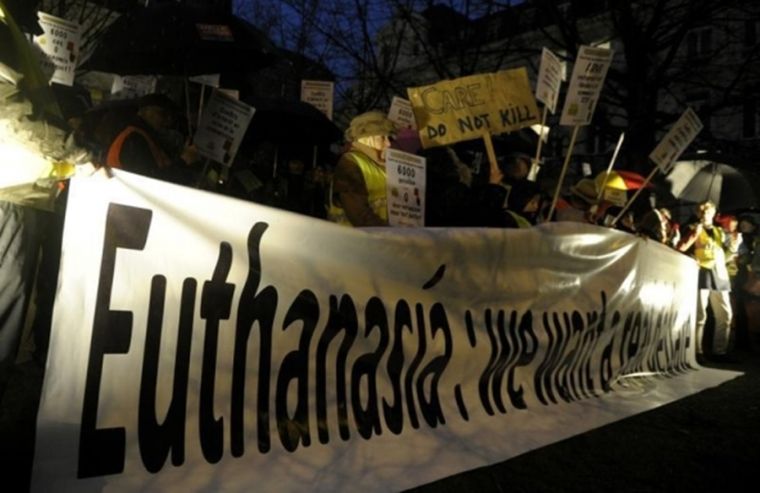Euthanasia In Belgium Increases By Over 40 Per Cent In Four Years

Euthanasia in Belgium has hit a record high with more than 2,000 intentional killings in 2015, latest figures show. This is an increase of over 40 per cent in four years.
According to the bi-annual report from the Euthanasia Control Commission, there were 2022 intentional killings last year alone.
Since euthansia was legalised in Belgium in 2002, 12,762 people have officially been euthanised. Two years ago, Belgium also removed age restriction on euthanasia.
Sophia Kuby, director of EU sdvocacy for ADF International, an organisation that advocates for the right of people to live out their faith freely, said: "The seventh report on euthanasia in Belgium shows that once we open the doors to intentional killing, there is no logical stopping point.
"While there were 24 euthanasia cases in 2002, this number has now increased almost a hundredfold. The slippery slope that Belgium embarked on in 2002 is becoming more and more visible. Today, euthanasia for a person who is perfectly healthy in a physical sense, but suffers from psychological illnesses, is accepted in Belgium."
Terminal illness is no requirement for euthanasia in Belgium.
Cancer was the most common reason for euthanasia requests in 2015. However,15 per cent of cases concerned non-terminal illnesses.
Among these, the report lists loss of eyesight and hearing, limitations of movement or heart problems.
There was also an increase in dementia-related cases.
Around one tenth of patients who asked for euthanasia experienced "multiple sufferings". Disease of the nervous system accounted for 6.9 per cent of cases.
In general, the law requires the suffering to be "unbearable" to qualify for euthanasia, said ADF.
"The commission has underlined that the definition of 'unbearable' is highly subjective and that every patient has the right to refuse pain treatment or palliative care," ADF added.
Robert Clarke, legal counsel and director for European advocacy for ADF International, said: "Modern palliative care can effectively treat most physical pain. It allows people to live their final moments in true dignity.
"While Belgium initially claimed to legalise euthanasia in order to prevent people from unnecessary suffering, now it also allows the killing of those who are physically healthy. We will be judged as a society by how we care for our most vulnerable.
"We have much better to offer the elderly and the sick than euthanasia, which can place a tremendous implicit, or even explicit, pressure on those people."
According to the European Institute of Bioethics, the 2016 Official Report of the Commission for Evaluation and Control of Euthanasia show a 41 per cent increase in euthanasia deaths over four years.
The age of euthanized 63 per cent of those who opted for euthanasia was between 40 and 79 years, and 36 per cent of patients were over 79.
In all, 124 people were euthanised for "mental and behavioral disorders", 3.1 per cent of the total.











